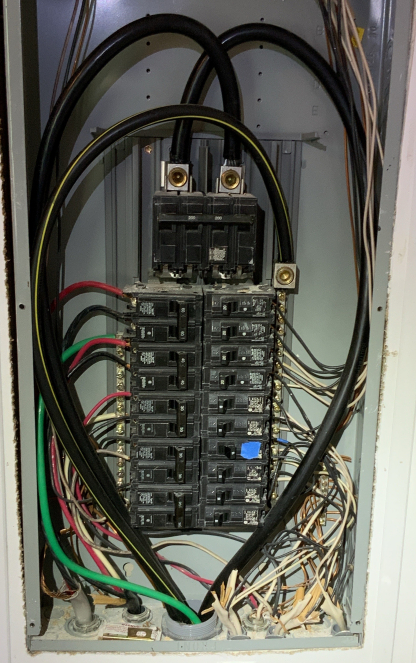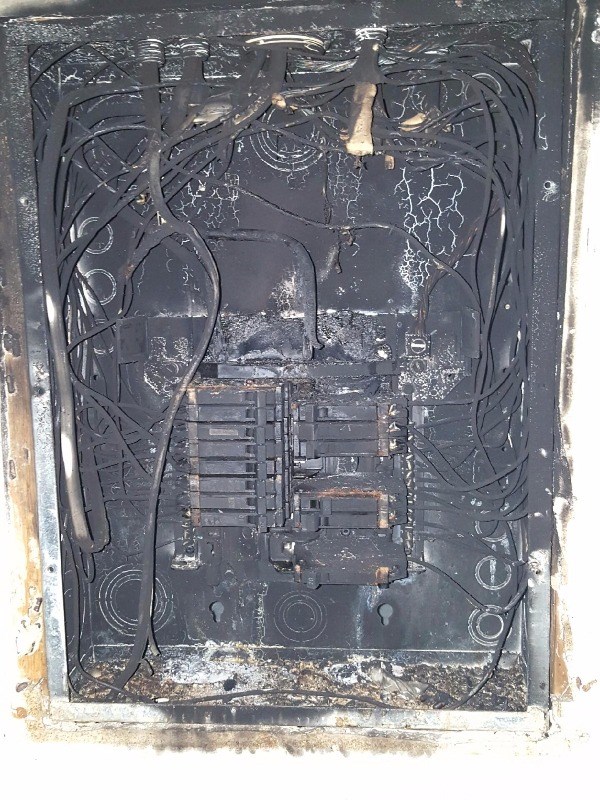Electrical Service Panel Risks in Property Claims
The following article on “Electrical service panel risks in property claims,” written by Jay Dykstra of HVACi and StrikeCheck, was originally published on Property Casualty 360.
Policyholders may be quick to file claims seeking settlements for replacements of faulty electronics or flickering lights, particularly after hurricanes, floods and windstorms. In reality, the problem may be within the electrical service panel.
Damages to service panels could have major impacts on your policyholders, including causing business interruptions or the need for temporary housing until power is restored. Before settling for electronics that may not be damaged, adjusters should understand how the electrical service panel may be impacting policyholders and claims.
How electrical service panels regulate electricity
More than 60% of electrical claims that adjusters assigned for investigation involved electrical panels, wiring, outlets or switches.
Power supplied from the electric grid travels to the property’s electrical service panel, which has a main breaker that acts as a main power shut-off and protects the entire panel from drawing too much power. It also has individual circuits that distribute and control the amount of electricity going to outlets, lights and appliances. Each breaker ensures that an individual circuit does not allow more amperage than it is rated for by tripping and stopping the flow of electricity when an overload does occur.

Electrical service panels control the amount of electricity going into a circuit to ensure it does not get overloaded.
The amount of voltage a breaker can distribute depends on its type, which includes single-pole, double-pole and ground fault circuit interrupters. Single-pole breakers with 120-volt circuits are used for lighting, outlets and smaller appliances. Double-pole breakers that accommodate 240 volts are common for large, hardwired appliances like electric water heaters, but they can also be for plug-in appliances, such as an electric range or electric dryer. Ground fault circuit interrupters prevent shock by detecting low levels of electrical current leaks and serve outlets located in potentially moist or damp areas, including kitchen counters, bathrooms, basements, laundry rooms and garages as well as exterior outlets.
Older buildings may use fuses, which burn out when an overload occurs. Fuses must be replaced to restore electricity. Fuse boxes cannot be repaired by current electric codes and would need to be replaced with a breaker panel.
Signs of damage to service panels
Policyholders may discover they have a service panel malfunction because of how it impacts the rest of the property. Lights may continuously dim or flicker, or power may shut off completely because breakers regularly trip. The service panel may also be hot to the touch, have a burning smell or emit strange sounds.
Experts testing claimed panels typically see evidence of damages caused by high voltage surge, water, and wear and tear.
Surges: High voltage surges are related to changes in the amount of voltage passing through a wire. They could stem from a nearby lightning strike or from items that use a lot of electricity, such as large appliances. Because electrical service panels are the gateway for electricity, they take the brunt of any external surges. Whole-house surge protectors may be used to block surges from entering home circuits and protect electrical equipment.
Water: Water could impact service panels over time if there is a nearby leak or water damage may occur in a single instance. If water leaks over time, corrosion could build up on the screw terminals and ruin connections. The interior of the circuit breaker could also develop corrosion because there are metal parts inside, and this could keep the breaker from properly operating. Corrosion could contribute to resistive heating, which increases the risk of damages or igniting a fire. Circuit breakers with water damage may not trip when an electrical overload occurs, which can also lead to overheating.

Electrical panels can sustain fire damages or have complications that increase their risk of igniting.
Fires: Electrical panels could cause a fire or be damaged in a fire. Overheating could be a sign that it is overloaded and result in a fire. Certain panels, including Federal Pacific Electric Company circuit breaker panels installed between 1950-90, are a known fire hazard.
Wear and Tear: Aging electrical systems and loose wiring can all cause damages that may not be related to a covered peril. StrikeCheck found that 12% of electrical service panels evaluated last year had damages from wear and tear.
Protecting against other risks
Adjusters should also know what electrical service panel damages may have been caused by policyholders or someone unfamiliar with the equipment.
Safety recommendations that policyholders should follow include:
- Only licensed electricians should maintain, repair, remove and install these panels. If done incorrectly, it could be a major fire hazard.
- Circuit breakers should never be taped or impeded from being able to trip because this could cause wires to become overloaded without a failsafe.
- Any unused openings in a panel should always be closed with filler plates to prevent contact with energized conductors or circuit parts.
- If a breaker regularly trips, never replace it with a larger breaker thinking it will handle more power. Circuits are designed for specific loads based on the number of outlets and the size or gauge of the connected wires, and changing that could lead to failures, including fires.
- Never replace a fuse with the wrong size. Allowing more amps than the wires could handle increases the risk of a fire.
- Never substitute an object, such as a metal coin, in place of a fuse.
- Never connect more than one set of wires to a single breaker, even if a policyholder adds on to the home but doesn’t have room for more breakers.
Regardless of whether the panel is included in the claim, adjusters should ensure it is evaluated when policyholders are having electrical problems at their homes or businesses. These could be a sign that problems exist at the panel, and they may continue if not discovered before other electrical repairs and replacements are made.
